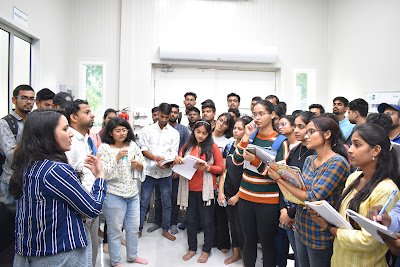Wednesday, 2 July 2025

ISARC in Varanasi organised and hosted learning and exposure visits for 164 final year Bsc Agriculture students of BHU under the Student Ready Programme of ICAR
The visit, presented the students with a general overview of ISARC, primarily under its three key units: the Center of Excellence in Rice-Value Addition (CERVA), the Center of Excellence in Sustainable Agriculture (CESA), and the Center of Education, Innovation, and Research for Development (CEIRD). Additionally, the students were also exposed to the operations and technologies of ISARC in order to provide them with practical knowledge and experience, given that a major portion of their classes in recent years were done virtually.
Through the important program, the students were able to develop their understanding about ISARC, what kind of science and research work ISARC is involved in, and how these are executed under each unit. Such visits are a way to pique the students’ interests across the field and also to make them aware of future career prospects and scopes of study by providing them with timely information at the right stage.
The program was designed and implemented by IRRI Education, the capacity development and knowledge dissemination unit of ISARC. IRRI Education has been playing a pivotal role in bolstering rice-based agri-food systems in the region by enhancing ecosystem stakeholders through education, capacity development, and knowledge dissemination activities. The unit regularly collaborates with institutes and organisations seeking interventions in the areas of capacity development on climate resilient practices, climate change mitigation, climate adaption, and sustainable agri-practices.
With ISARC’s strategic position in Varanasi, which is in close vicinity of institutes like Banaras Hindu University and the Indian Institute of Vegetable Research, and with resources like world-class IRRI scientists and facilities, these customised programs of IRRI have significantly contributed to the participatory capacity development and the strengthening of rice science knowledge in the region and beyond.